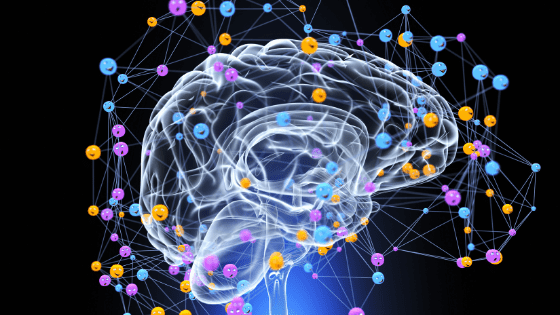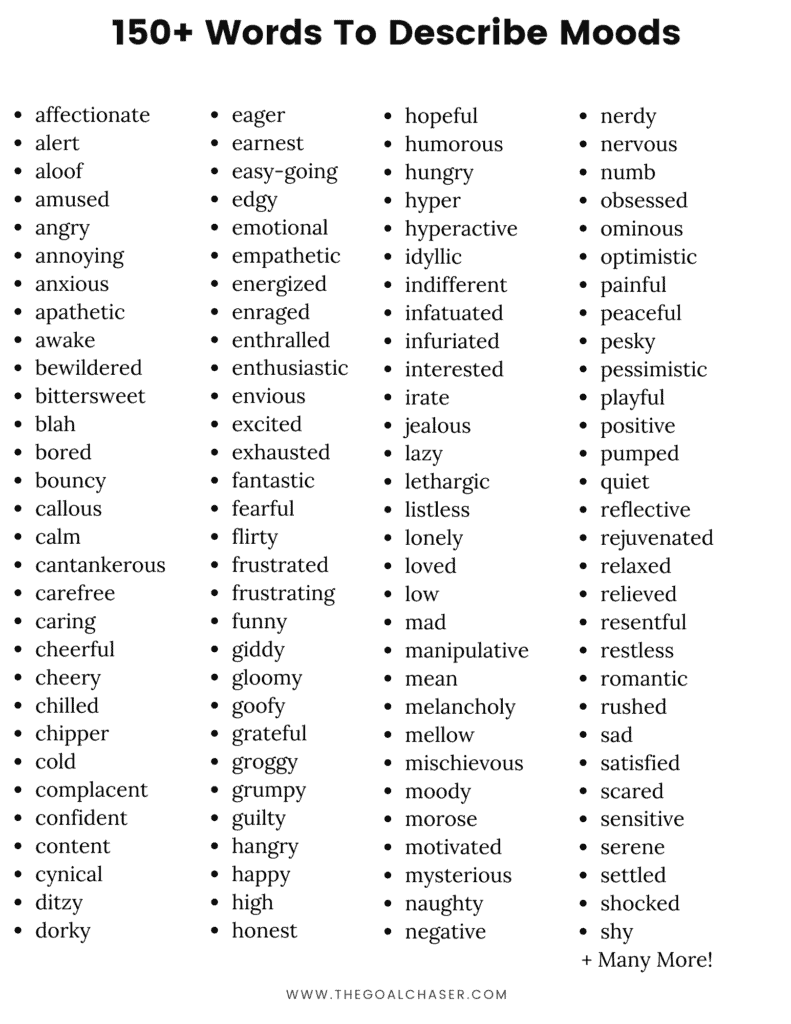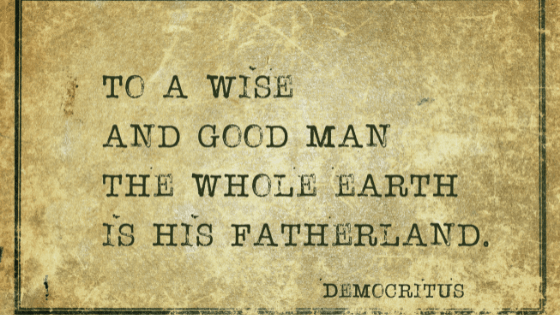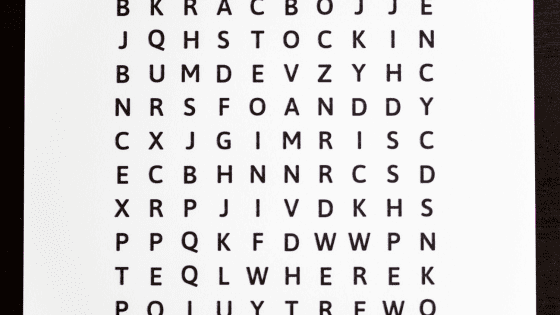Words To Describe Moods – (List of Mood Words)
How Do You Describe Moods?
A mood is a state of mind and can be described with adjectives such as happy, sad, angry, excited, scared, or any other emotion.
Moods tend to be a temporary state of mind, however, we all know people who tend to have their ‘set’ moods!
When you are trying to describe a mood, it is often helpful to think about what caused the mood.
For example, if someone is feeling sad, you might ask what happened to make them feel that way. If someone is feeling happy, you might ask what they are looking forward to or what good things have happened recently.
Moods can be short-lived or long-lasting. They can also be contagious, so be sure to keep your distance from those people who appear to be in a bad mood!
Moods are an important part of our lives. They can affect how we feel about ourselves, other people, and the world around us.
They can also affect how we behave. For example, if you are in a bad mood, you might be more likely to snap at someone or get into an argument.
Related: How to Change Your Mood (It’s Easier Than You Think)
List of Mood Words
Here is a great list of words that can be used to describe moods of all types:
- affectionate
- alert
- aloof
- amused
- angry
- annoying
- anxious
- apathetic
- awake
- bewildered
- bittersweet
- blah
- bored
- bouncy
- callous
- calm
- cantankerous
- carefree
- caring
- cheerful
- cheery
- chilled
- chipper
- cold
- complacent
- confident
- content
- cynical
- ditzy
- dorky
- eager
- earnest
- easy-going
- edgy
- emotional
- empathetic
- energized
- enraged
- enthralled
- enthusiastic
- envious
- excited
- exhausted
- fantastic
- fearful
- flirty
- frustrated
- frustrating
- funny
- giddy
- gloomy
- goofy
- grateful
- groggy
- grumpy
- guilty
- hangry
- happy
- high
- honest
- hopeful
- humorous
- hungry
- hyper
- hyperactive
- idyllic
- indifferent
- infatuated
- infuriated
- interested
- irate
- jealous
- lazy
- lethargic
- listless
- lonely
- loved
- low
- mad
- manipulative
- mean
- melancholy
- mellow
- mischievous
- moody
- morose
- motivated
- mysterious
- naughty
- negative
- nerdy
- nervous
- numb
- obsessed
- ominous
- optimistic
- painful
- peaceful
- pesky
- pessimistic
- playful
- positive
- pumped
- quiet
- reflective
- rejuvenated
- relaxed
- relieved
- resentful
- restless
- romantic
- rushed
- sad
- satisfied
- scared
- sensitive
- serene
- settled
- shocked
- shy
- silly
- sleepy
- stressed
- sullen
- surprised
- sympathetic
- tender
- tense
- testing
- thankful
- thoughtful
- tired
- triumphant
- troubled
- uncaring
- uninterested
- unmotivated
- unnerved
- unsettled
- upbeat
- uptight
- whimsical
- zen
What are some positive mood words?
When we want to describe someone being in a positive, or happy mood, we can use mood words such as:
- affectionate
- alert
- awake
- blessed
- blissful
- calm
- carefree
- chilled
- chipper
- confident
- content
- dreamy
- eager
- earnest
- ecstatic
- empathetic
- energized
- energizing
- enthusiastic
- excited
- fantastic
- flirty
- fun
- funny
- giddy
- happy
- honest
- hopeful
- humorous
- interested
- loving
- motivated
- optimistic
- playful
- positive
- pumped
- reflective
- rejuvenated
- relaxed
- satisfied
- tender
- thankful
- thoughtful
- triumphant
- upbeat
- whimsical
- zen
Difference between mood and personality
Moods are temporary states of mind that everyone experiences, while personality is a more lasting set of traits that makes up who you are.
Everyone has a unique personality, but everyone also goes through different moods.
For example, you might be in a bad mood today because you didn’t get enough sleep last night, but that doesn’t mean that you’re a bad person.
Moods can be caused by lots of different things, like tiredness, hunger, or stress. They can also be caused by hormones, like during puberty or pregnancy. And they can be caused by medical conditions, like depression or anxiety.
Personality, however, is made up of different characteristics, like being shy or outgoing, optimistic or pessimistic, and organized or messy.
These traits are relatively stable, which means they don’t change much over time.
Personality is thought to be caused by a combination of factors, like genes (things you inherit from your parents), environment (the place where you grew up), and experiences (things that happen to you).
So, moods are temporary states that everyone experiences, while personality is a more lasting set of traits.
If you’re interested in reading more, be sure to check out:







